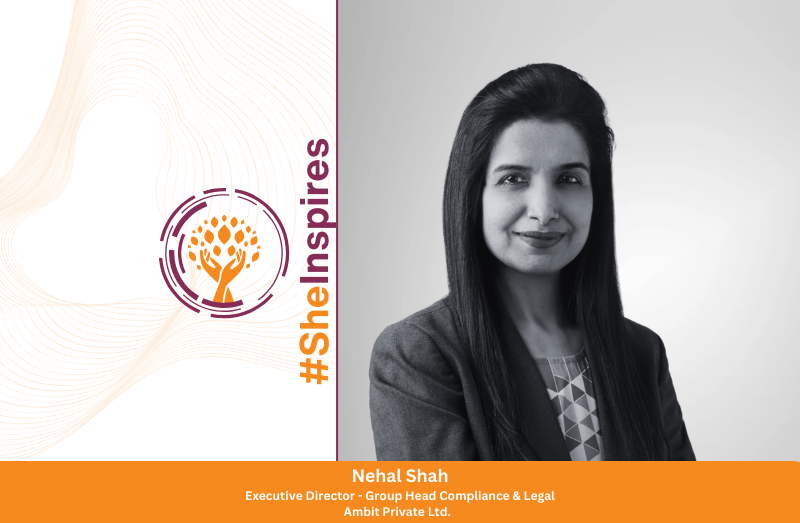"Each situation requires a thoughtful response, shaping a flexible leadership style that rises to meet challenges. It's a commitment to delivering the best outcomes within a unique context, nurturing growth, and steering the path toward success."
Tell us about your leadership approach. What are the guidelines or methodologies you follow as a leader?
Leadership is about fostering collaboration and promoting excellence, creating an interconnected web of engagement among team members and stakeholders. My focus revolves around cultivating daily inspiration, nurturing cooperative partnerships, and embracing a proactive approach with careful planning. This dynamic leadership style is centered on cultivating a positive work culture that values collaboration, inclusivity, and accountability. Our shared objectives go beyond individual departments, uniting the entire organization.
An effective leadership approach should be adaptable and considerate of various situations. Each situation requires a thoughtful response, shaping a flexible leadership style that rises to meet challenges. It’s a commitment to delivering the best outcomes within a unique context, nurturing growth, and steering the path toward success.
Navigating regulatory change requires both agility and foresight. As a leader, how do you prioritize compliance without stifling innovation?
I would encourage a culture that involves compliance and legal teams early in the innovation process and projects. This proactive approach allows for early identification of potential regulatory hurdles and fosters collaborative problem-solving.
Further, create and implement flexible compliance frameworks that are adaptable to changing regulations and avoid rigid, one-size-fits-all approaches that can stifle creativity. Continuous investing in training and education helps employees/stakeholders stay up to date on the latest regulatory requirements. This would lead to fostering a culture of continuous learning and adaptation.
Lastly, regulatory technology (RegTech) solutions can be utilized to automate repetitive compliance tasks, such as data monitoring and reporting. This frees up human resources to focus on more strategic initiatives, including innovation.
Compliance shapes a company’s success, not just mitigates risk. Should it act as an enforcer or business enabler, and where do most firms misjudge this balance?
You’re hitting on a very important point.
Compliance's role should extend far beyond being a mere "risk mitigator." It shapes a company's success. The core issue is finding the right balance between being an enforcer and a business enabler
As an Enforcer, compliance must maintain its role in ensuring adherence to regulations and internal policies. This protects the company from legal penalties, financial losses, and reputational damage. Without this, there’s no foundation for trust or sustainable growth.
As a Business Enabler (Strategic Advantage), compliance should also act as a partner to the business, facilitating growth and innovation. This involves:
- Streamlining processes: Compliance can help identify inefficiencies and implement best practices.
- Building trust: Strong compliance fosters trust with customers, investors, and partners.
- Enabling market access: Compliance can open doors to new markets and opportunities.
- Fostering innovation: By integrating compliance early in the development process, companies can innovate responsibly.
Compliance leadership is no longer just about mitigating risk—it’s about shaping the future. How can today’s leaders use compliance as a catalyst for business transformation?
The thoughtful guidance of a skilled Compliance Officer holds great importance. Their valuable insights naturally integrate them into different parts of an organization, positioning them as contributors to collaborative efforts. Their expertise not only ensures compliance with regulations but also nurtures a culture of togetherness. Moreover, the Compliance Officer’s guidance transforms compliance into a catalyst for collaboration, strategic prowess, and mutual achievements.
Fostering a culture of ethics and transparency, promoting open communication, building strong partnerships with business, investing in RegTech solutions to improve efficiency, fostering a culture of continuous improvement and learning helps legal & compliance in transforming its role to strategic driver for business transformation.
Given your extensive industry experience, what guidance would you offer to aspiring professionals entering the field?
The primary aspect is to develop a genuine passion for your profession and the tasks you undertake. Continuously learning, adopting best practices, and incorporating positive habits into your routine are essential for enhancing your contributions to the organization. Improving your knowledge and skill set is important for personal and professional growth, sometimes involving stepping out of your comfort zone for comprehensive development. Embracing a multifaceted role provides well-rounded exposure, which is valuable for today’s workforce to embrace for versatility.
Within the compliance field, it is vital to raise awareness regarding roles and obligations while also fostering career growth in the compliance field.
Engaging in various platforms to educate, train, and mentor aspiring professionals is essential for nurturing a talent pool and strengthening the skillsets of compliance professionals, enabling them to assume a variety of roles. Being open to different roles with enthusiasm can positively impact the industry’s talent landscape.
About Nehal Shah:
Nehal Shah, Executive Director – Group Head Legal & Compliance, Ambit, has over 20 years of experience in compliance, legal, secretarial, AML, audit, and corporate governance across capital market intermediaries and listed companies. She has led compliance functions since a young age and has worked on key regulatory approvals, including Mutual Fund, PMS, AIF, ESG Rating Provider (ERP), and IFSCA licenses. Her expertise extends to mergers and acquisitions, restructuring, ESOP approvals, audits, and post-acquisition integrations.
Before joining Ambit Group, she held roles at CARE Ratings, YES Asset Management, Deutsche Bank, Fidelity India, and Aditya Birla Group. Her work has earned her recognition, including being named “Top Women in Finance” (2023) by Equalifi and “Top 10 Compliance Officers in India” (2020) by CEO Insight Magazine. She is also a visiting faculty member at NISM and Government Law College, serves on regulatory committees at BCCI and CII, and has conducted sessions for SEBI officials on securities law.


